These percussive devices can help relax muscles when seeing a masseuse isn’t an option
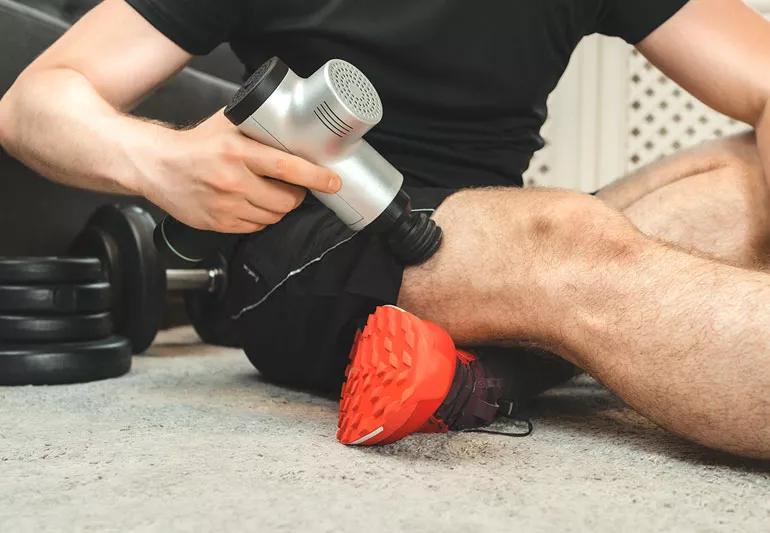
Feeling stressed out and tight? A massage therapist can help work out those stress-induced kinks. But what if you don’t have the budget or time to see one?
Advertisement
Cleveland Clinic is a non-profit academic medical center. Advertising on our site helps support our mission. We do not endorse non-Cleveland Clinic products or services. Policy
With an ever-increasing array of massage guns on the market, you might find that relief fits in the palm of your hand. Physical therapist Gary Calabrese, DPT, offers tips for how to effectively use a personal massager for benefits that go beyond stress relief.
A percussive massage gun uses vibrations to warm your muscle tissue and increase blood flow to target areas. You apply it to sore spots, and — boom, boom, boom! — its rapid-strike action gets to work.
“Think of it like a mini hammer, repeatedly impacting the soft tissue and causing blood flow to increase in that area,” Dr. Calabrese says. “The gentle pressure can decrease any tight muscle tissue or soften scar-like tissue, called adhesions. This helps to elongate the muscle fibers.”
Stretching and massage therapy can do this, too — but with a massage gun, you can do it on your own, from the comfort of your couch. And you don’t have to be sore or tense to use one.
“They can also be good for warming up your muscles before you start an activity or helping with cool-down afterward,” Dr. Calabrese adds.
Yep! To recap, massage guns can:
“When used properly, portable massage guns are generally safe and effective at delivering a literal quick hit of relief to the regions of your body where you carry stress, like your neck, shoulders and lower back,” Dr. Calabrese says.
Advertisement
“If you have underlying medical conditions, concerns or are actively recovering from an injury, it’s always best to consult your healthcare team.”
Sounds great, right? Unfortunately, the tools themselves can be pricey — but when you add up the potential cost of regular visits to a massage therapist, it may be a worthwhile expense.
“People often ask me if a handheld massager will improve their athletic performance,” shares Dr. Calabrese. “The research is clear that these devices have not been proven to improve speed, power or endurance. They may, however, improve your range of motion (ROM) and perception of fatigue, which may ultimately benefit you.”
Limited research suggests one benefit that may be a positive for short-term performance: “Massagers could aid competitors who need to lift a weight or hit a goal just one time,” he clarifies. “They may increase performance in those instances because they prepare the muscle you’re using for that singular event.”
Ready to get gunned? Dr. Calabrese walks you through the basics of using a massage gun on yourself or someone else.
Be sure to stick to muscles, not bones. If you drag the massage gun over a bony spot, like the nape of your neck, you’ll feel some kickback — and probably a little bit of pain. To avoid injury, it’s best to skip these areas.
Your massager may give leg day a little bit of a leg up. Before a heavy workout, target it on a single group of muscles, like your calves or thighs, to help ready them for activity. “By prepping the tissue, you’re less likely to cause damage during your workout,” Dr. Calabrese says.
If you’re doing a whole-body workout, a whole-body warm-up (like jumping jacks) may be a better fit. “But if you’re heading into a workout that targets certain muscle groups, targeting those muscles ahead of time with your massage gun may be more efficient,” he adds.
You can also turn to the massage gun for a bit of extra recovery. The reason you “hurt so good” after a workout is that exercise creates a buildup of lactic acid, which leads to muscle pain. Using a handheld massager after activity can reduce or delay muscle soreness by decreasing your muscle fibers’ ability to hold onto that lactic acid.
What to look for in a handheld massager
Commercially available massage guns come in an array of sizes, shapes and price points. Whether you need to target one muscle or a group of muscles, there’s a right-sized massager for you.
Advertisement
These four features can help you choose the massager that’ll make you say “aaahhhh”:
If you just can’t shake that soreness, there’s nothing quite like getting a professional massage. But a massage gun may be the perfect investment for relieving those aches and pains — and the stress that comes with them — between visits.
Advertisement

Sign up for our Health Essentials emails for expert guidance on nutrition, fitness, sleep, skin care and more.
Learn more about our editorial process.
Advertisement

Medical massage is tailored to your health needs to help you recover

By focusing directly on your pain points, you may find short- and long-term relief with this type of massage

This treatment may reduce stress, relieve pain and allergy symptoms, and help with sinus pressure
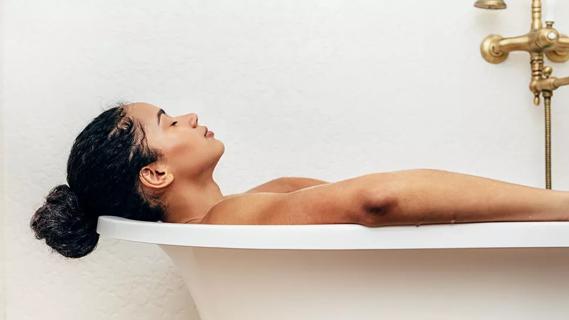
The same things you do to treat sore muscles after exercise can help treat soreness after a massage
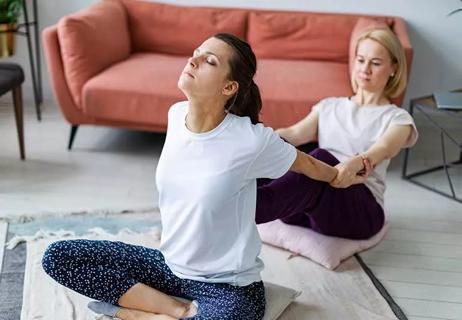
Focused on stretching and yoga poses, it can increase flexibility and ease back pain
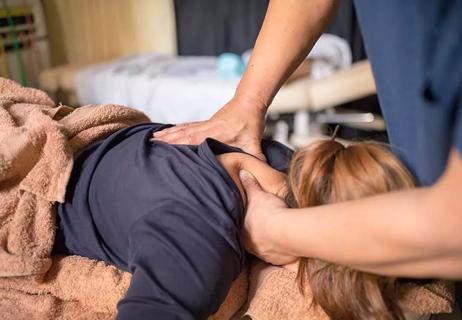
A whole-body practice that undoes the effects of gravity and repetitive motions
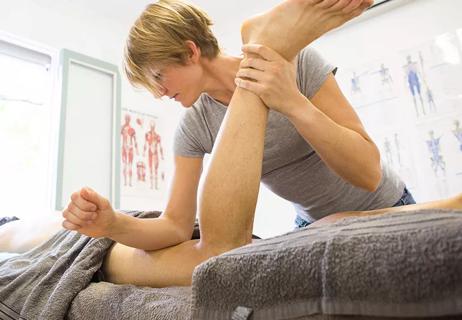
A massage can release stress, soothe muscles and alleviate pain

The tropical fruit is a good source of antioxidants and vitamin C

Most people fall asleep within 10 to 20 minutes, but if your experience is different, adjusting your sleep schedule may help

Exploring your hidden side can lead to better understanding of what makes you tick